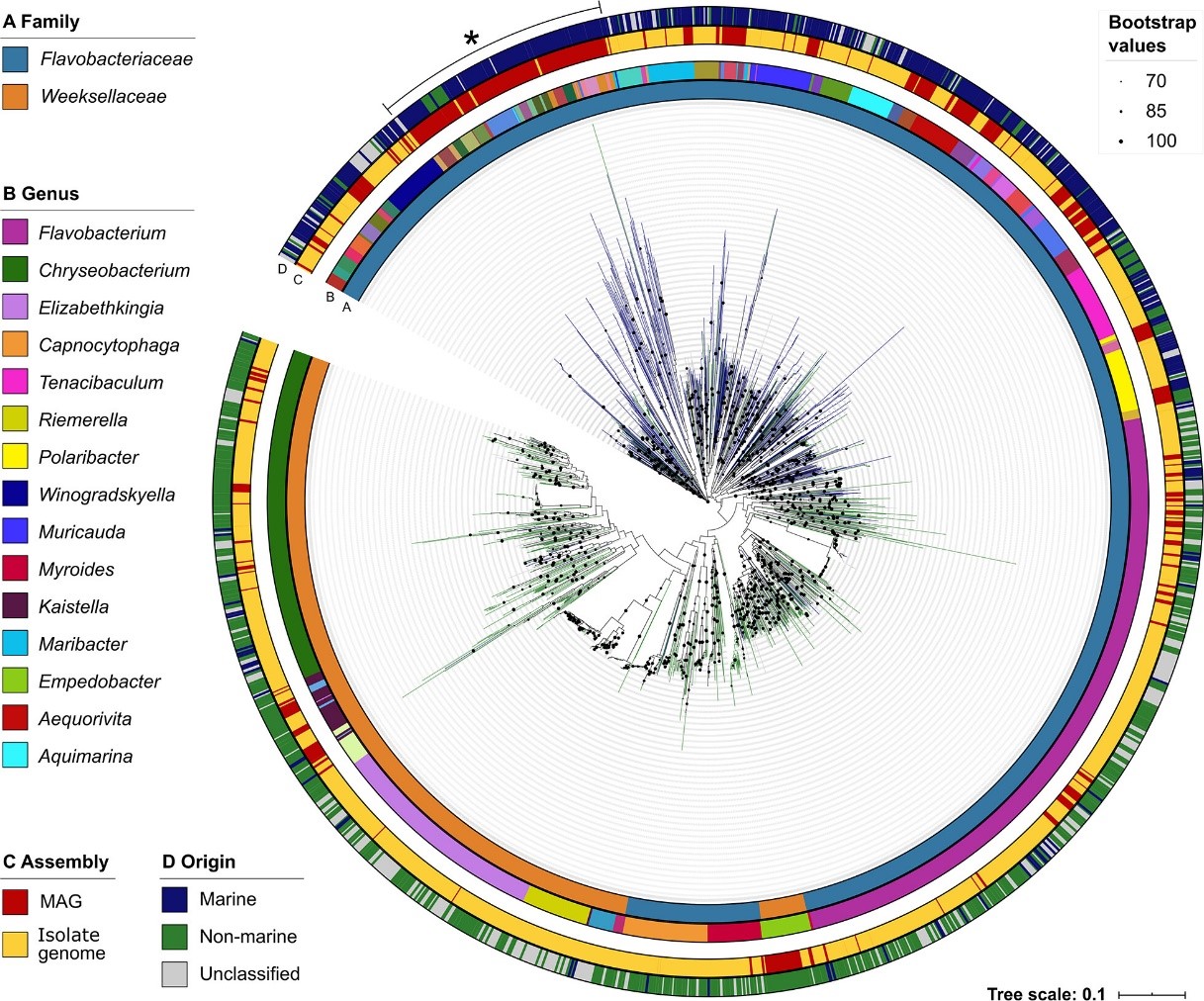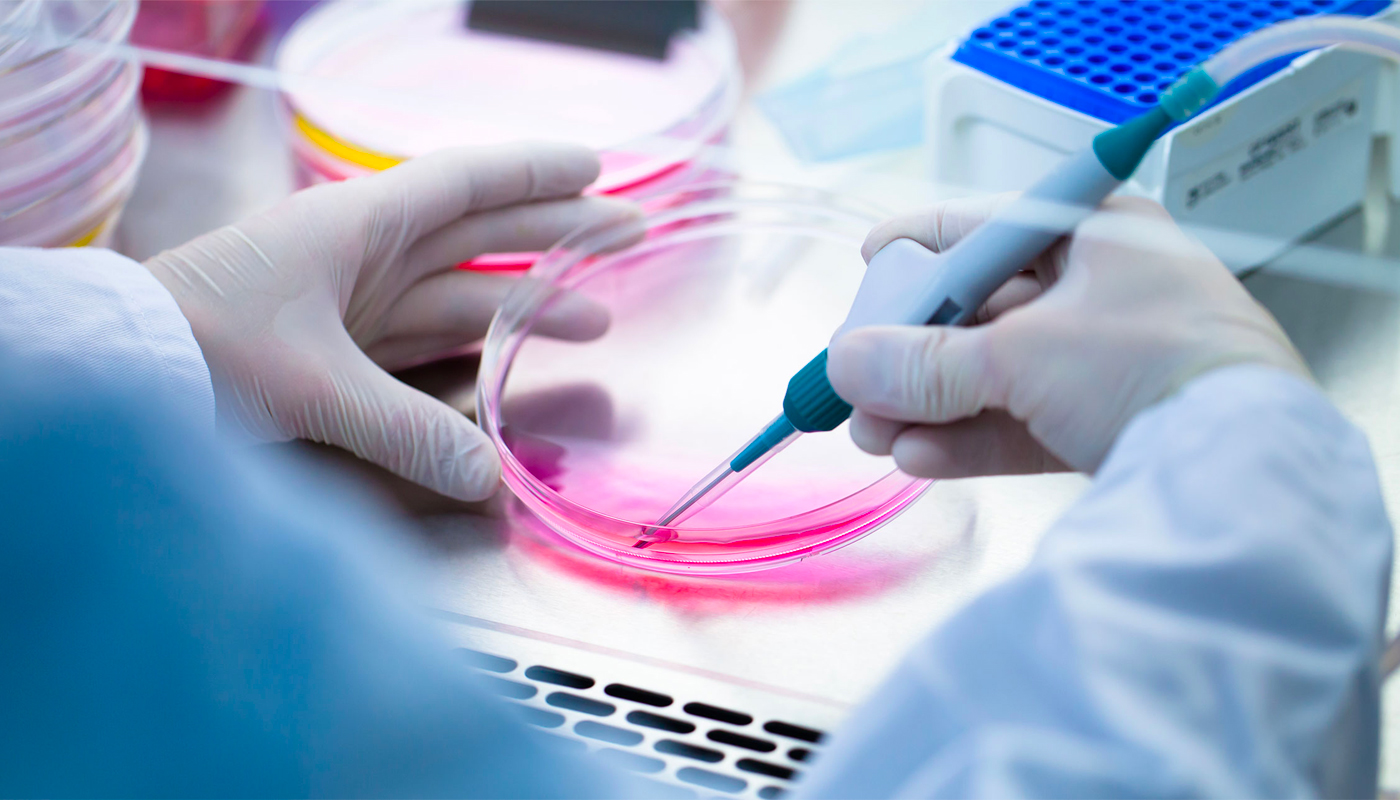Natural product biosynthetic potential reflects macroevolutionary diversification in the Flavobacteriaceae family

A new article, published in mSystems, delved into the secondary metabolite biosynthesis potential of Flavobacteriaceae to find highly intertwined phylogenetic-secondary metabolism relationships within this family. The authors examined 2,680 genomes to suggest that the carbohydrate, peptide, and secondary metabolism triad synergistically shaped the evolution of this keystone and widely distributed bacterial taxon. These features likely underpin the broad host range and opportunistic-to-pathogenic behaviour encompassed by species in this family. This study breaks new ground for future research on select Flavobacteriaceae spp. as reservoirs of novel drug leads. Particularly, it highlights a versatile secondary metabolism among species belonging to the genera Aquimarina and Kordia, which should be explored in future natural product research endeavours. The study was first-authored by former iBB/DBE PhD student Sandra Silva and coordinated by professor Rodrigo Costa, counting on expert contributions from iBB/DBE scientist Tina Keller-Costa, and Ulisses Nunes da Rocha and Masun Homsi from the Helmholtz Centre for Environmental Research, Leipzig, Germany. See more.
